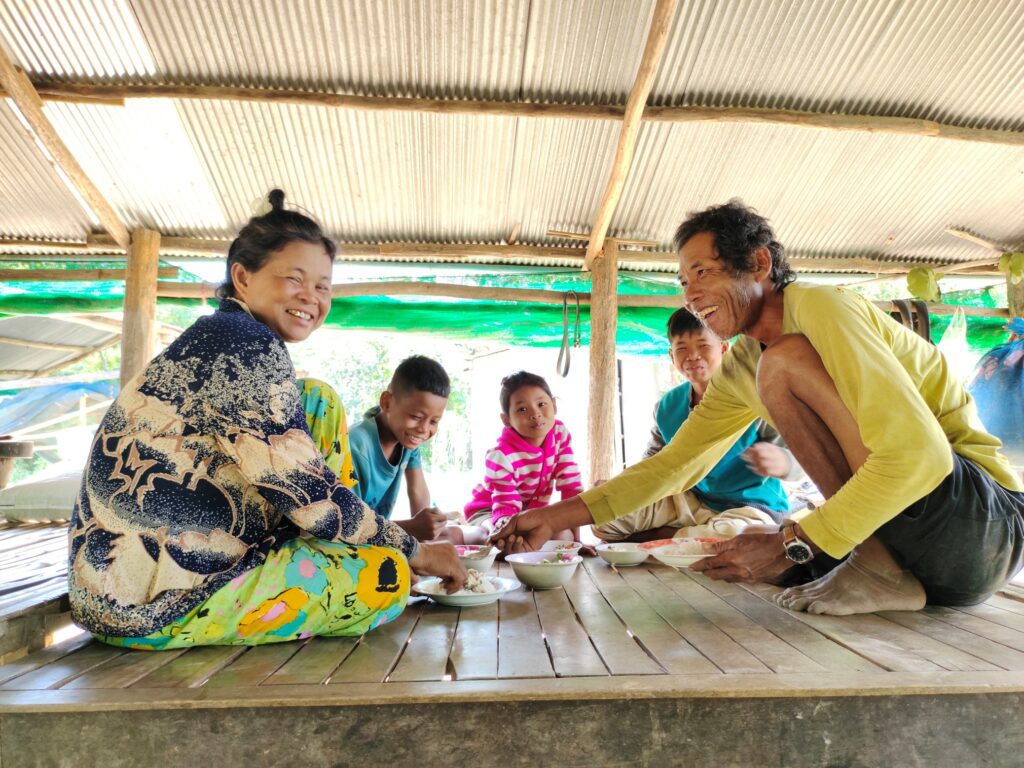

Heal me, O Lord, and I shall be healed; save me, and I shall be saved; for you are my praise.
Jeremiah 17:14
Stories such as that of the Ram-Leng family can be powerful, heartbreaking and inspiring. They show it is possible to mend lives torn apart by addiction and domestic violence, even in the most trying economic circumstances.
Consumption of alcohol and drugs, poverty, poor education and gender inequality are all factors associated with domestic violence. In Cambodia, where gender inequality is widespread, we have been helping our partner Development Partnership in Action (DPA) run a project to increase the household income, livelihood security, food security and resilience to disasters of the poor and vulnerable people in 14 villages. One of the project’s activity themes, Gender Development to Improve Livelihood, aims to empower women and reduce gender-based violence.
To end domestic violence, DPA is using an innovative tool called the Gender Road Map, which addresses unequal power relations between couples at the household level. Through workshops, coaching, counselling and follow-up sessions, couples are introduced to alternative ways of communicating and interacting and are accompanied in designing and implementing their own Gender Road Map, their path to a jointly desired future.
The Ram-Leng family’s journey
Before joining the project, Ram Nga,1 a former soldier suffering from alcoholism and mired in poverty, used to quarrel with and sometimes beat his wife, Leng Vun. This behaviour led to his family being discriminated against and marginalized. When DPA started working in their village in 2016, Nga and Vun were identified by fellow villagers for the roadmap activities.
Nga and Vun received training on topics ranging from laws on the elimination of discrimination against women to the negative effects of alcohol consumption. They were also given chickens, vegetable seeds and a drip irrigation system, as well as technical training on rearing poultry and growing vegetables and rice.
Under the family plan they developed, Nga, a fisherman by trade, first reduced his alcohol consumption and started helping Vun around the home by, for example, making a chicken coop, tending to the chickens, growing vegetables for the family and helping Vun with housework and cultivating rice. In 2017, he stopped drinking altogether and expanded their poultry, vegetable and rice production. Later, the couple bought a small field, where they planted rice twice a year, thus significantly increasing their income. Nga also consciously tried to speak gently with his family and to talk with his children about their future.
Fruits of their efforts
Thanks to the changes they made under their family plan, Nga and Vun now not only have year-round food security, but also a very happy and harmonious family. Their home has not been the scene of domestic violence since 2017. Nga even reported that his children have begun showing him love and listening to him more. Vun said proudly, “My husband has turned out to be a good husband and a good father to my children.” She likes that Nga now speaks to them using “soft and lovely words.” She added, “I love him very much.”
What’s more, the family is now respected in the community. Nga has become a role model, educating other local married couples suffering from domestic violence. “I feel proud of my husband,” gushed Vun.
From reflection springs gratitude
Reflecting on the past, Nga describes domestic violence as evil. He also feels a strong sense of shame. He used to have to borrow money from neighbours for food for his family because he would spend significant sums on alcohol. Since they joined the project, however, Vun has managed the family’s money, even setting aside enough for the children’s education.
Thanking our partner DPA for helping him and his family, Nga refers to the project as “my success in life.” He concluded, “My family now is very happy because I have changed my behaviour positively.”
A lasting change
There are many stages in a healing process, and no two recoveries from domestic violence look alike. What is needed first and foremost, however, is a genuine desire and commitment to change. Other factors, such as poverty and addictions, should also be addressed to foster lasting change.
As seen in the Ram-Leng family’s story, the chances of success can be further increased when other members of the community are involved in a way that holds people responsible for changing their abusive behaviour. Such community-based interventions not only protect victims, but also change deeply rooted gender ideas and attitudes.
Today, Nga and Vun are sharing their experiences to help others, thus showing that there is a way out of the cycles of domestic violence and a path to healing and recovery.
Your generosity enables our partners around the world to help families like that of Nga and Vun mend and build their lives.
Also read:
- An Advent of transformation: the story of Halima
- An Advent of freedom: the story of Víctor
- An Advent of resilience: the story of the hardy houses
- In Khmer nomenclatures, the patronym precedes the given name.

